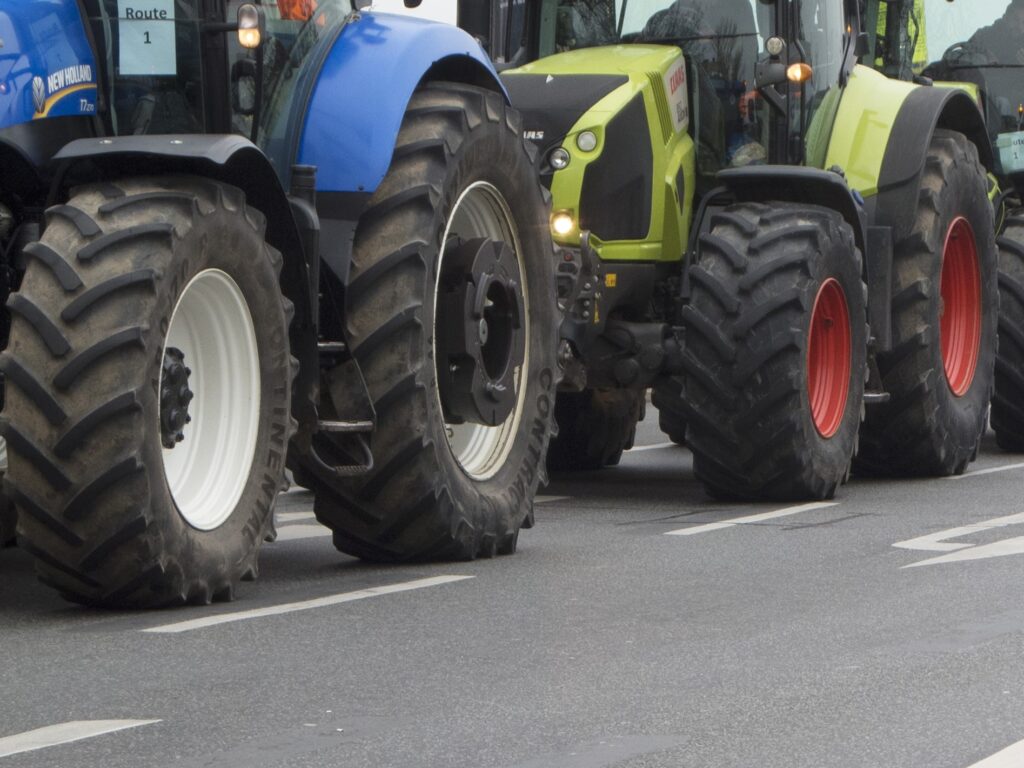The low participation today prevented the slow march that Algarve farmers had planned to carry out between Faro and Castro Marim, with only one motorway route being made between Faro and Tavira, said a source from the organization.
The concentration of farmers was called to the Algarve stadium, in Parque das Cidades Faro-Loulé, at 05:00 am, and the departure for Castro Marim, via Estrada Nacional 125, was scheduled for 6:00 am, but the group of around 15 participants only left Faro heading to Tavira, at 8:30 am.
Initially, Fátima da Rocha, spokesperson for the Civil Movement of Portuguese Farmers, organizer of the protest, told Lusa that the intention was to head to Tavira via the A22 motorway and, there, meet up with more protesters, but at around 10 am the same source announced that, “given the low participation, the route to Castro Marim would no longer be taken”.
“It is a shame in the Algarve that there was not so much participation, but the region's farmers are in solidarity with the demands that are being made by colleagues from other areas of the country”, said Fátima da Rocha, clarifying that, already in Tavira, the protesters Those present concluded that it was better not to make the slow march to Castro Marim.
The spokesperson for the Algarve praised the participation in other protests held today by the Movement and which led to roadblocks and access routes to borders such as Vilar Formoso and Caia, with hundreds of participants with tractors and agricultural machines demanding better conditions for the primary sector.
On Wednesday, Algarve farmers announced that they were going to carry out a slow march between Faro and Castro Marim to demand “fair conditions” and “valuation of the activity”.
The protest was included in the actions that the Civil Movement of Portuguese Farmers called for today in various areas of the country to demand better conditions for professionals.
The Civil Farmers Movement of Portugal presented itself as “a spontaneous and non-partisan civil movement that unites farmers and civil society in defense of the primary sector” and justified going on the road with agricultural machinery with the need to “fight for the human right to food adequate, for fair conditions and for the valorization of the activity”.
Inviting “all civil society to be present and support this cause”, Portuguese farmers said they were “united and prepared to defend themselves from the permanent attack on sustainability, food sovereignty and rural life”.
The Civil Farmers Movement of Portugal highlighted on the occasion that its objective is “to support farmers and improve the productivity of the agricultural sector, ensuring a stable supply of food at affordable prices”.
The structure defends the “immediate replacement of aid” and the “assumption of contractual commitments” as part of a review of the Common Agricultural Policy Strategic Plan (PEPAC) to ensure its adaptation “to the Portuguese reality”.
Farmers also defend agricultural policies with medium and long-term guidelines, in order to guarantee stability to the sector, a budgetary allocation “appropriate to each pillar”, eco-regimes appropriate to each territory, convergence towards the European Union average, the review of payment calendar and the reduction of bureaucracy in licensing (Farmer Counter).
Among the demands are also the recognition of environmental services, production factors “at fair and competitive prices” (particularly in fuels), the valorization of products at the producer, the application of the same European Union rules to the entry of agricultural products from third countries and that agriculture is part of the Citizenship subject in schools.



















Comments